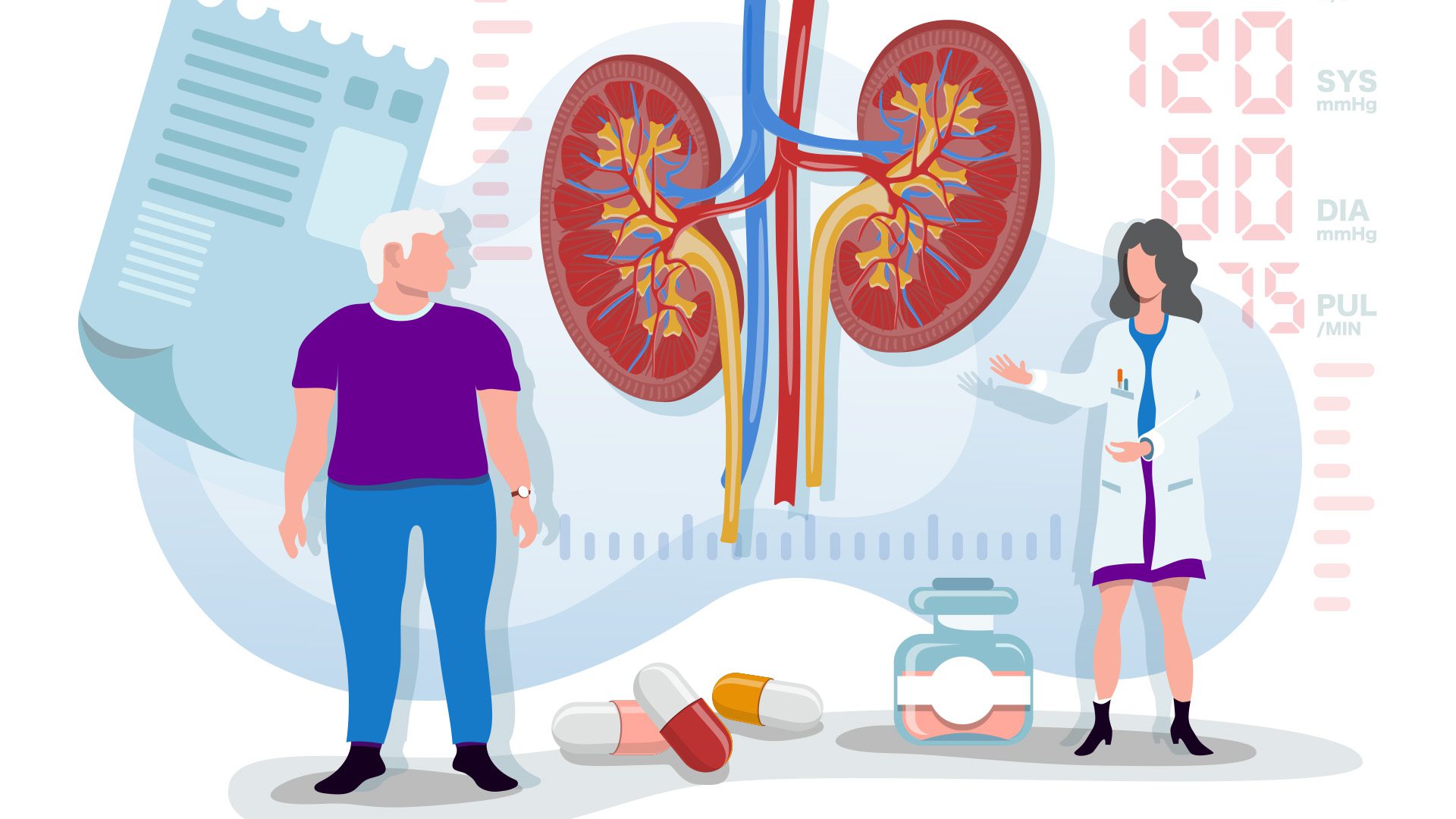Chronic kidney disease (CKD) affects an estimated 37 million adults in the U.S. If not properly managed, it can lead to end stage kidney disease (ESKD), which can escalate current or new complications such as cardiovascular disease, anemia, hyperkalemia or kidney failure.
People with CKD often have other chronic conditions that contribute to kidney failure, including high blood pressure and diabetes. Properly managing CKD and other chronic conditions with adherence to the appropriate medications is key to slowing the progression to ESKD.
Challenges With CKD and Medication Management
Patients on dialysis typically have a large care team with several prescribers, and they are prescribed an average of 11 medications per day. Given the complexities with their medication regimens, patients with CKD often have difficulty taking medications as prescribed and are predisposed to nonadherence, toxic side effects and serious drug interactions.
Patients living with ESKD also face added complexities. Dialysis treatment is life altering and time consuming, which can lead to people feeling overwhelmed and stressed.
“With all that kidney care patients have to deal with on a day-to-day basis, adherence to medications is often an issue with the population,” according to Graham Gravley, PharmD, Senior Vice President of Clinical Services and Specialty Provider Markets at AnewHealth. “Patients with kidney disease require more than traditional medication management; they need personalized support. Taking a patient-centered approach to pharmacy care, including synchronizing and organizing medications, helps optimize patient outcomes and drives improved disease state management.”
Managing CKD and Other Chronic Conditions
With chronic conditions, it’s important that patients adhere to the appropriate drug therapy to get the intended impact from their med routines. Doing so can help control blood pressure; manage diabetes; reduce high urine protein levels; and avoid nephrotoxicity, accidental overdose and adverse drug events, supporting better health and wellbeing for patients with CKD.
- To control blood pressure, patients with CKD are commonly prescribed renin-angiotensin system antagonists like ACE inhibitors and angiotensin receptor blockers. In addition to controlling blood pressure, these oral medications reduce risk of cardiovascular disease and play a critical role in protecting the kidneys.
- Reducing high levels of protein in urine is another way ACE inhibitors and angiotensin receptor blockers can slow the progression of CKD. Since high urine protein levels can accelerate kidney damage, these medications support proper kidney health and function.
- To manage diabetes, it’s important patients maintain appropriate A1C (blood sugar) levels. Patients with CKD and type 2 diabetes are often prescribed SGL2 inhibitors. These oral medications support blood sugar management in addition to reducing the risk of kidney failure and CKD progression.
- Avoiding nephrotoxicity is key to slowing the progression of CKD, as nephrotoxicity leads to kidney damage. Nephrotoxicity is caused by certain medications, including NSAIDs like ibuprofen, which patients might pick up over the counter. Identifying and preventing use of nephrotoxic meds can help patients with CKD avoid further kidney damage.
- Avoiding accidental overdose and adverse drug events is also critical to patient health and wellbeing. CKD can decrease how well some medications are eliminated from the blood. If doses are not adjusted appropriately, patients will be exposed to elevated drug concentrations. This can result in serious side effects. For example, according to AnewHealth data, up to half of the top CKD medications must be adjusted to avoid nephrotoxicity, illustrating the need for coordinated pharmacy care.
Tailoring Support to Patient Needs
A proactive, technology-driven and patient-centered approach to medication management helps optimize med routines and improve adherence to slow the progression to ESKD. Key components of this strategy include early identification of risk with monthly reports, real-time medication surveillance with continuous medication reconciliation and comprehensive pharmacy care. This high-touch care drives medication management for patients who benefit from medications being organized into compliance packaging and delivered to the home.
Impacting Clinical and Economic Outcomes
The efficacy of this integrated approach has proven adherence results. According to AnewHealth data, adherence rates in 2024 were 94% among 21,000 patients for diabetes medication and 94% among 37,000 patients for hypertension medication. The data are based on average patient PDC (Proportion of Days Covered) scores. PDC scores are used by CMS for Medicare Star Ratings.
So, adhering to the appropriate medications to better control chronic conditions and slow the progression to ESKD not only reduces complications and improves clinical outcomes, but it can affect economic outcomes as well. In particular, adherence to oral antidiabetic medications and renin-angiotensin system antagonists for high blood pressure are triple-weighted measures for Medicare Part D Star Ratings, which impact revenue for dialysis facilities.
Comprehensive pharmacy is designed to support people with complex medical needs and chronic conditions like CKD. Ensuring patients take the right medications appropriately supports sustainable disease management and helps slow the progression to ESKD. The result is elevated patient care and enhanced outcomes, driving success for patients and their kidney care providers.



